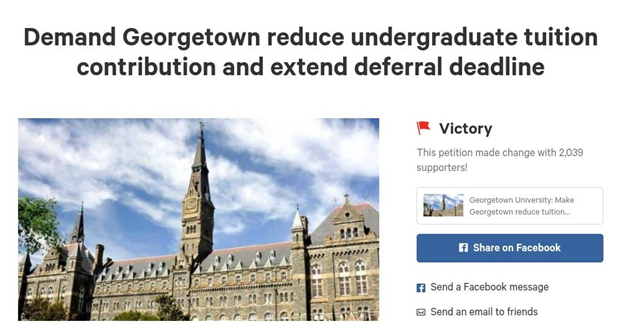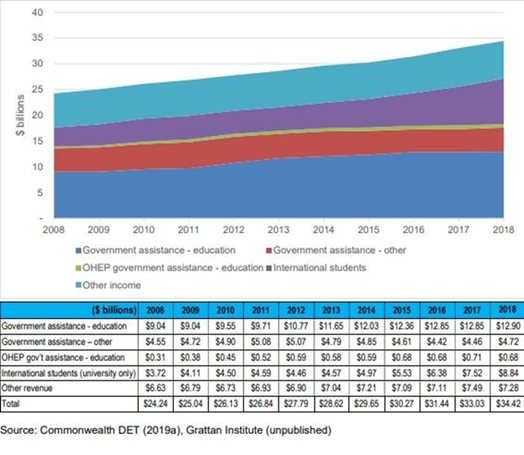Summary
- Experts believe pandemic is resulting in exposing the education system.
- Prestigious colleges like Cornell, Columbia, Harvard University are facing backlash in fee increase despite online studies.
- Students are filing lawsuits and petitions to get the fees reduced; 3,410 have signed the student body petition #HearUsHarvard
- If the crisis continues, Australia’s universities will face a cumulative loss of between AU$10b to AU$19b from 2020-2023.
- New Zealand government plans to support the education industry with NZ$51.6m package.
Kids work hard throughout their school life to get into the college and university of their choice. It is a ‘dream come true’ situation for many and exciting time in everyone’s life. They get to go somewhere, meet new people, all while getting a new degree.
Since March 2020, not just the students but also universities and colleges are seeing unprecedented times. Novel coronavirus (COVID-19) is on rampant across many countries around the globe, making social gatherings somewhat dangerous if not entirely impossible.
School, colleges and universities are not functioning on the ground since the virus struck us. While parents are ‘Working From Home’, for students ‘Learn From Home’ has taken over, in all small towns and big cities.
Indeed, there is substantial pressure on universities to cut the fees as students are taking tuitions online and not utilising any on-campus facilities such as gym, science lab, library etc. The extracurricular activities like sports or music or art are also out of the question as social gatherings are prohibited.
Some of the Ivy League colleges are proposing the bulk of their courses online; Harvard, Yale, Princeton are amongst the prestigious universities that boost academic excellence, selectivity in admissions and social elitism. Only Princeton has offered a 10% price cut in the academic fees.
The universities claim that these fees are to support resources like the library, fitness facilities, technology, and other student-focused items. Moreover, the problem is that most of the cost of these resources is fixed. If universities are to cut the fees, they may have to lay off many of its staff like librarians, IT support. The system and the facilities will break down. On the other hand, prestigious universities cite to offer value to its degree and therefore making students pay full fees, even if it is online.
The Pandemic Crisis Resulting in Exposing the Education System:
The enrollments have declined, students are rejecting high fees while studying online, have resulted in massive layoff across colleges and universities. They are struggling to stay afloat, and the teachers are the latest victim to the cost cuttings.
The unending restrictions in lockdowns due to coronavirus have started to show its results on the education system.
In the U.S., City University of New York laid off around 3,000 adjunct professors and part-time staff. The university is now facing a legal case from the worker union. The University of Akron, Boston University and the University of Arizona have also laid off staff or announced salary reduction. At Ohio University, tenured professors are worried about getting non-renewal notices.
With massive layoff in universities, the industry experts’ questions whether this education model is becoming unsustainable and higher education require reform.
In the U.S. almost 70% of students take a loan for higher studies.
Students Fight Back Against Fee Hike:
Many of the Ivy League schools are facing lawsuits from the students for not reducing tuition fees which approximately falls between US$50,000 and US$80,000 per year. These schools provide financial aid packages and free tuitions to the deserving students coming from families who cannot afford the fees.
Harvard University will increase its fees for 2020-2021 to US$49,653 from last year. Those on campus will be required to leave by Thanksgiving; fall semester classes will be online and operating with only 40% capacity on campus. Yale too increased its tuition fees to US$74,900 for 2020-2021 and will mix classes online and in person. This fee includes tuition, accommodation and board fees.
Cornell, Columbia University is facing a lawsuit against college administrations for charging higher fees in returns of online education. These Ivy League schools are facing criticism for its handling of financial decisions. In the lawsuit’s applicants stated that ‘online learning is no equal substitute for in-class academia’.
Students at Harvard University and Georgetown have filled subsequent online petitions to reduce the fees for the year 2020-2021. Till now, 3,410 have signed the student body petition #HearUsHarvard for changes in 2020-2021 Academic Year. Students at Georgetown are rejoicing as the university announced reducing tuition by 10% for all of its undergraduates’ students. They will also not be invited back to campus for the fall semester and even for the spring semester if the situation continues. Jackson Butler, who started the petition, said, “This victory makes it clear that our voices were heard, and together, we held Georgetown accountable”. Georgetown’s decision has given other students hope in their demands from their respective colleges.

Image courtesy: Georgetown online petition from change.org
Closed Campus and Student Visa Restrictions in Australia:
In the month of February Prime Minister Scott Morrison imposed a ban on travel from China, which resulted in stranding thousands of students who were to start their academic year from March. Meanwhile, the competitor universities from UK, USA and Canada continued with their studies.
According to the Mitchell Institute April 2020 report, Australia’s higher education sector will encounter a unique set of challenges. If the crisis continues, Australia’s universities will face a cumulative loss of between AU$10 billion to AU$19 billion from 2020-2023. Strict border restrictions imposed due to the impact of COVID-19 will direct result in the collapse in the international student revenue stream. For the last decade number of international students have increased to 57%.
Australia’s domestic student demand is also affected by coronavirus. Hence according to the industry experts, it is essential to change current policy settings to increase capacity across the tertiary sector.
Total annual investment in higher education in Australia:

Government to Rescue Industry in New Zealand:
Education Minister Chris Hipkins, along with Prime Minister Jacinda Ardern announced the package to spend NZ$51.6m on the education system. New Zealand’s foreign student revenue is about NZ$5b. According to the sources, universities are urging for government assistance to reopen campus before September.
Conclusion:
Studyportals, an International Study Choice Platform, recently conducted an online survey. It states, since March 2020, 45% dropped in interest in studying in the United States among its site users’ year-on-year data, but later the demand increased.
Its main findings suggest that even though across the globe, students’ studies are affected due to COVID-19, they also wish to continue with their plans. Students are willing to take a risk to study abroad despite the obstacles such as travel risk, low funding from parents, which they are finding due to the pandemic, albeit a growing number of them are changing plans. Their abroad studies dream depends on coronavirus spread and countries reopening borders.




